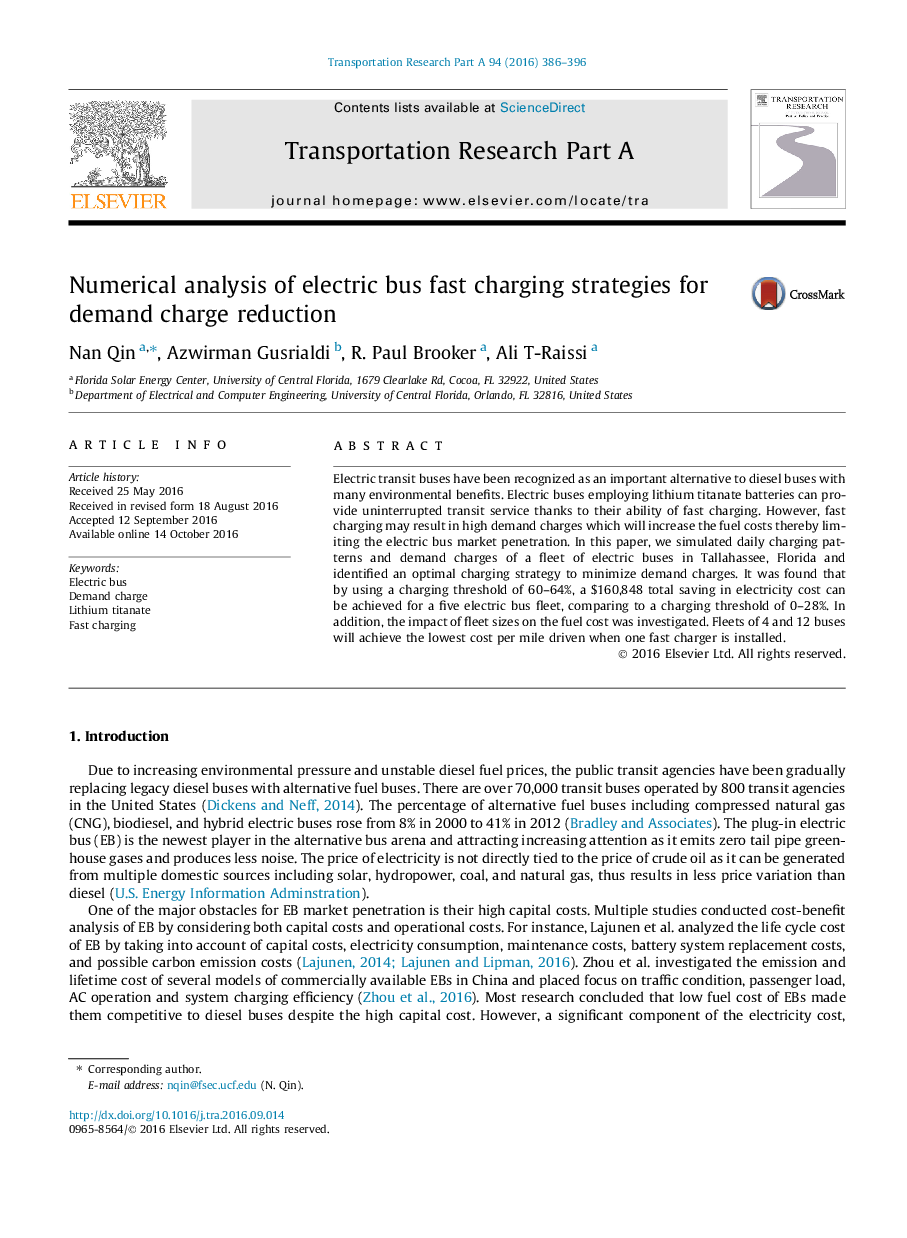| Article ID | Journal | Published Year | Pages | File Type |
|---|---|---|---|---|
| 4929040 | Transportation Research Part A: Policy and Practice | 2016 | 11 Pages |
Abstract
Electric transit buses have been recognized as an important alternative to diesel buses with many environmental benefits. Electric buses employing lithium titanate batteries can provide uninterrupted transit service thanks to their ability of fast charging. However, fast charging may result in high demand charges which will increase the fuel costs thereby limiting the electric bus market penetration. In this paper, we simulated daily charging patterns and demand charges of a fleet of electric buses in Tallahassee, Florida and identified an optimal charging strategy to minimize demand charges. It was found that by using a charging threshold of 60-64%, a $160,848 total saving in electricity cost can be achieved for a five electric bus fleet, comparing to a charging threshold of 0-28%. In addition, the impact of fleet sizes on the fuel cost was investigated. Fleets of 4 and 12 buses will achieve the lowest cost per mile driven when one fast charger is installed.
Related Topics
Physical Sciences and Engineering
Engineering
Civil and Structural Engineering
Authors
Nan Qin, Azwirman Gusrialdi, R. Paul Brooker, Ali T-Raissi,
